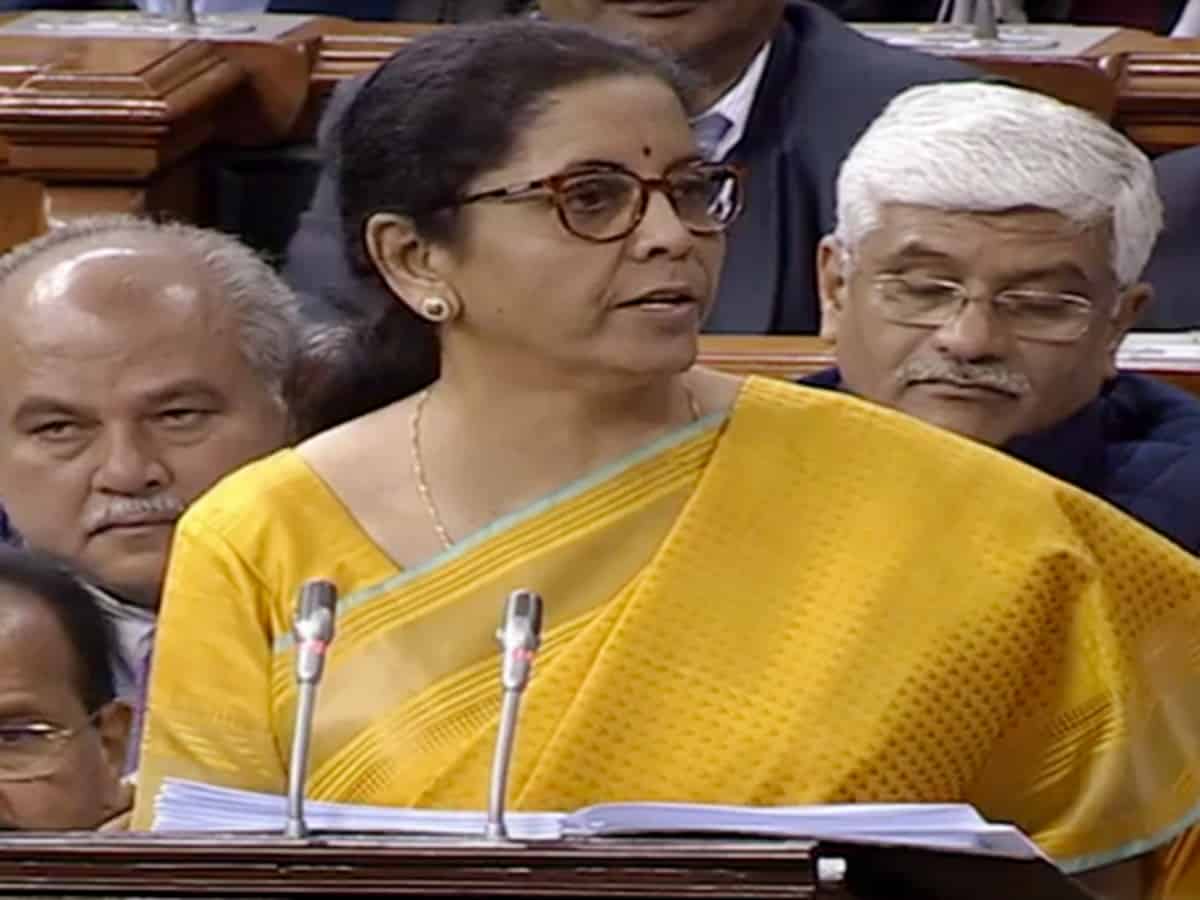
As Union Finance Minister Nirmala Sitharaman prepares to present the Union Budget on February 1, there are soaring expectations from across all sections of society. A nation recovering from the twin blows of Corona Virus pandemic and economic slowdown, is looking for a healing touch from the Union Budget.
All eyes are on the Union Budget. There is curiosity as to how the Modi government will tackle the challenge of putting the economy back on the growth trajectory.
The nation has been saved of a second wave that was widely feared. Vaccine rollout has begun. There are hopes of putting behind the pandemic and forging ahead. The next in line is facing the economic challenges and putting back the economy once again on the growth path, after it contracted to an all-time historic low of minus 23 per cent.
There are similar other expectations from the Union Budget. An estimated 1.8 crore job losses resulted during the pandemic. Micro, Small and Medium Enterprises (MSME) units were shut down in their thousands. Migrant workers, who fled to their faraway homes, are looking to get back to their jobs and livelihoods.
As a result of the pandemic, there was expectation of businesses exiting China, to shift to India, instead of moving to Vietnam or to Bangladesh. That did not seem to happen, at least at the desired level.
Unlike India, the United States experienced the second wave of the Corona Virus pandemic. Yet, the US did not lose sight of the need for making an outreach to the common masses.
The United States pumped in $ 3 trillion each, twice over, which is close to 15 per cent of the GDP. With vaccine rollout and expectations of controlling the pandemic, the second half of the year is likely to see the economy back on to the growth path.
India, on the other hand, has been saved of the second wave of the pandemic. But, in real terms, the package, announced in three tranches, has been to the tune of only 1 to 2 per cent of the GDP. Thus, the challenges are more for India.
Policy missteps included corporates being given tax-waivers, in the hope that they will use it to reinvest in setting up industries that could trigger jobs creation. But that did not happen.
That money could have been used for being put in the hands of the common people, which would have resulted in increasing demand, which, in turns triggers higher manufacturing.
On the contrary, MSME units and small business ought to have been made beneficiaries of government assistance, leading to rebound in the economy.
Money was not put in the hands of the vulnerable sections. If that done, it would not only have prevented disruptions like migration, but also triggered demand, leading to greater growth.
Conventional wisdom is to increase infrastructure spending, which generates employment. This has to be done on a priority.
Money has to be released in real terms to the states, where the bulk of public spending is done. If the states are starved of funds, there cannot be any meaningful and significant forward movement.
The Mahatma Gandhi National Rural Employment Guarantee Act (MGNREGA) is the best mechanism to secure the lives and livelihoods of the vulnerable sections in the rural areas.
There are fears of privatization of banks, which will mean cutting into credit for the small and micro businesses. Will the Budget signal to the privatization of banks is the topmost question in the minds of observers.
There is also a need for signaling stability in Tax and Tariff rates, in order to inspire confidence in the investors. Even minor fluctuations can seriously hurt investments, which are yet to pick up.
Even in important legislation, the tendency to aggressively push through reforms should be desisted. Important legislations, at least, should be formulated after consultations with all stakeholders, to avoid creating waves of grievances.
Farmers are looking for some relief. The Budget should look at possibilities to help restore trust and confidence among the farmers.
By and large, there have been meaningful measures like LPG gas for the poor, Jan Dhan, direct cash transfers and such other steps. While the vulnerable have been getting relief, growth policies have been missed.
Budget is both a challenge and an opportunity for the government for mid-course correction, as well as to come up with thoughtful and imaginative policy measures that can kick start the economy.
Venkat Parsa is a senior journalist and writer based in New Delhi.
Views expressed are personal

